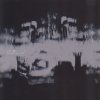 This disk combines recordings from two well-known Electronic Voice Phenomena (EVP )researchers: Raymond Cass, whose work makes up the bulk of this disk, and Dr. Konstanin Raudive, who not only produced thousands of tapes during his lifetime but is also alleged to have appeared on recordings himself after his death. (In case you were wondering, Dr. Raudive says he's "living fine.")
This disk combines recordings from two well-known Electronic Voice Phenomena (EVP )researchers: Raymond Cass, whose work makes up the bulk of this disk, and Dr. Konstanin Raudive, who not only produced thousands of tapes during his lifetime but is also alleged to have appeared on recordings himself after his death. (In case you were wondering, Dr. Raudive says he's "living fine.") Ash International
The packaging for this rarely available release (it's gone out of printtwice in seven years) is lush and obviously produced with care. Thebooklet includes not only an essay explaining EVP, but also includesdetailed and thorough biographies of Cass, Raudive, and FriedrichJurgenson (who pioneered the technique after finding voices on histapes of bird calls). The cover image—an adaptation of apolygraph—and the photos of Cass and Jurgenson are printed in asilvery ink with a slight metallic sheen. The polygraph image isrepeated in the inside of the booklet and is the perfect visualrepresentation of eerie, distorted speech. The title itself issignificant too...a ghost orchid is a tiny and rare flower, hard tocome by and grow.
I was a bit apprehensive of listening to this CD initially—I'm thesort of person who avoids scary movies and covered her eyes during thebloody bits in Gladiator—but I actually did not find the recordings to be particularly scary orcreepy, perhaps because I was expecting them to be. If I walked into an emptyroom where these recordings were being played, however, I can't say I wouldn'tbe scared half to death. The voices do sound ethereal and other-worldly at times;at other times they sound like a commercial or the oldies stationbeing played on a cheap stereo down the block. They speak in English,German, Russian, and Latvian, and sometimes combinations of severallanguages (the so-called "polyglot voices"). They sing, laugh, and aresaid to respond directly to researchers and address them by name. Eachfragment is repeated three times to give the listener a chance toreally hear and absorb the voices.
These voices are said to be ghosts attempting to communicate from theafterlife (including Winston Churchill), psychic impressions from theresearcher himself, and even extraterrestrial beings (the evidence forthis being their bad grammar). I'm not sure I buy any of thoseexplanations myself, but I do find these recordings fascinatingand compelling. Some of the transcriptions of the voices are a stretchand don't sound to me much like what they're "supposed" to (I've alsopossibly identified an "unknown" alien word as a German surname). Evenviewing these recordings as the results of radio interference, cordlessphones butting in, or CB or shortwave radios breaking through, they canbe enjoyed as the sonic equivalent of a found poem.
samples:
- Polyglot voices: Sonja Liepina; Where's Mable?; Cold Soldart
- PSB Interrupt: Raudive; Radio Luxembourg; Not Enough There to Copy; Don't Do it!
- Out of This World
- Alien Voices: Dead Machines; We Can See Edith by Radio; Una
Read More

